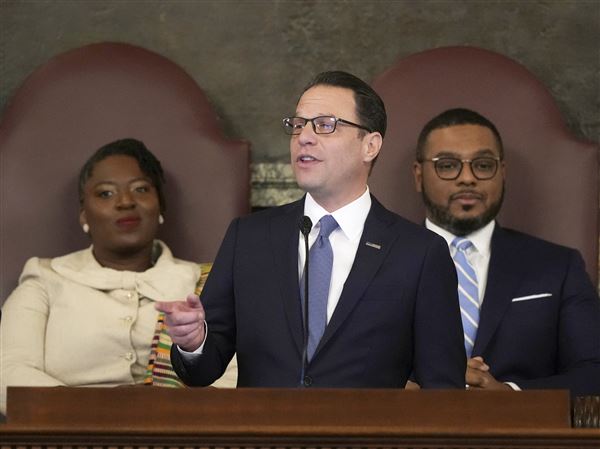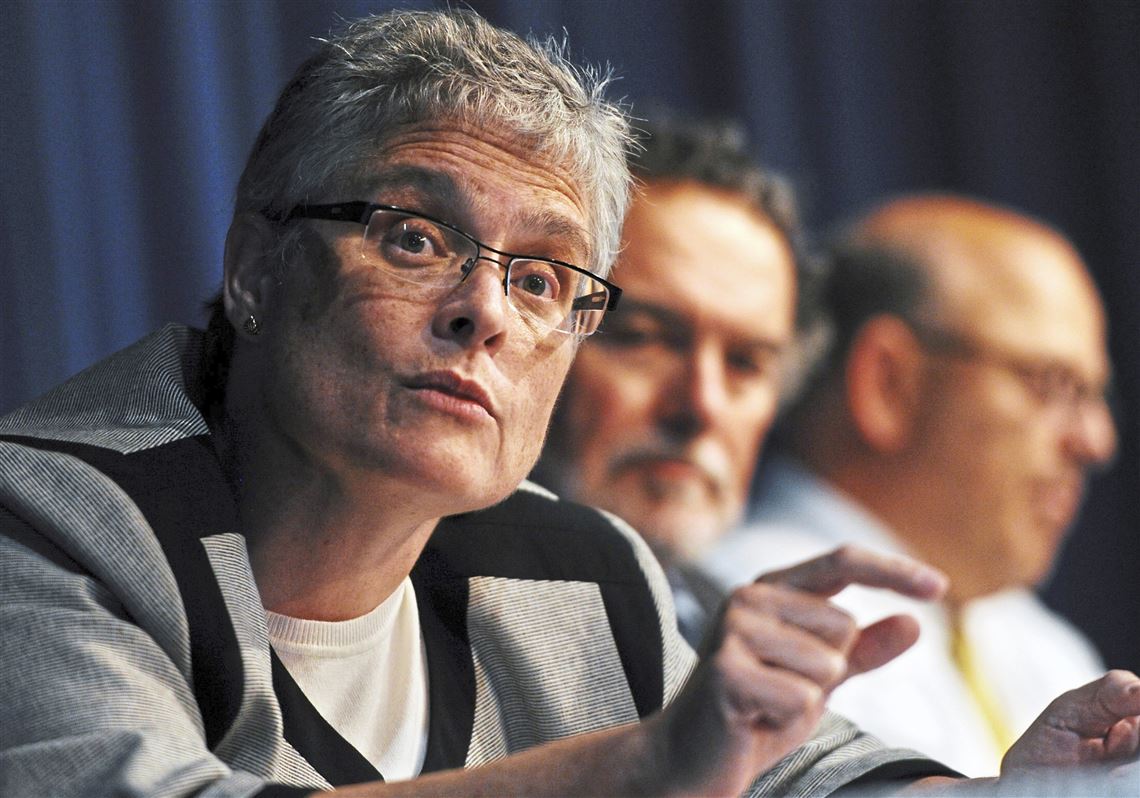The board governing Pennsylvania's 14 state-owned universities Friday morning named Clarion University President Karen Whitney as interim chancellor of the State System of Higher Education to which those schools belong.
She begins those duties Sept. 12, in the wake of an announcement in July by Chancellor Frank Brogan that he intends to retire Sept. 1. He will have served nearly four years.
Ms. Whitney, 57, was praised by system leadership as being right for the job but she also has faced criticism, including from the faculty union as she has steered her campus through some of the largest enrollment losses and financial turmoil in the system.
The union president Friday morning expressed dismay and “puzzlement” with her appointment.
The departure and Ms. Whitney's ascension comes at a difficult time for the State System and its universities, which just received recommendations to overhaul the schools and chancellor's office in the face of financial and enrollment troubles.
Ms. Whiteney will become responsible in large part for advancing the overhaul as the system searches for a permanent successor to Mr. Brogan, and views on the recommended changes are already mixed.
The vote by the State System's board of governors came at a special teleconference session Friday morning. Ms. Whitney previously announced her plan to retire as Clarion's president in June 2018.
“Karen Whitney has provided strong, steady leadership as president of Clarion University for the past seven years,” said board of governors Chairwoman Cynthia D. Shapira in a statement. “She is smart, strategic and pragmatic.
"Because she has strong relationships across the System and beyond — and is keenly aware of the challenges and opportunities ahead — she will be able to hit the ground running so we can continue our forward momentum."
Ms. Whitney has been a focus of criticism on the Clarion campus, including from leadership of the Association of Pennsylvania State College and University Faculties, amid decisions she made about programs to address the funding strains.
In a statement Friday morning, the State System faculty took issue with the appointment, noting that Clarion University has struggled under Ms. Whitney’s tenure.
“In the short time since the board’s announcement, I have already been inundated with phone calls and emails expressing puzzlement, concern, and annoyance with regard to the board’s choice of Dr. Whitney to be the interim chancellor,” said Kenneth Mash, union president. “Clarion University has continued to struggle under Dr. Whitney’s leadership, and we have not heard her articulate a solid plan for turning the tide.
“Campus morale is low, and the Clarion faculty have repeatedly expressed their concern about Dr. Whitney’s leadership style, her priorities, her lack of support for the academic enterprise, and her defensiveness in the wake of criticism.”
On July 12, Mr. Brogan, 63, told board members privately that he planned to retire, hours before they heard a consultant's recommendations for overhauling the financially ailing system. It faces lagging state support and falling enrollment tied in part to a drop in high school graduate numbers.
The system with 105,000 students has seen an enrollment loss averaging 12 percent since peaking at nearly 120,000 students in 2010. But some campuses are confronting far larger drops, like Cheyney University, down 53 percent; Mansfield University, off by 35 percent; and Clarion and Edinboro universities, which have seen 29 percent declines.
Clarion's 29 percent enrollment loss in six years, its razor-thin reserves and other challenges are illustrative of the woes that have led to calls for revamping the university system.
Ms. Whitney has been an outspoken critic of the state's lackluster dollar support of the 14 universities and of the way campuses are left to cover mandates for which the schools receive no state funding.
She cited as an example the collective bargaining agreement with the system's faculty union last year, which she said turned a campus budget that would have been balanced into one with a $2.8 million deficit. The state included only $32,000 in additional funds to cover the cost of the contract, reached after a three-day strike, the first in the State System's history.
"The point I’m making is the business model is broken,” she told the Post-Gazette in an interview published in June. “I cannot grow enrollment fast enough to make up for unfunded mandates like labor agreements.”
‘’I have no problem with labor agreements,” she added. “I have a problem when they’re not funded.”
The National Center for Higher Education Management Systems recommended no campus closures or mergers, but it said weaker campuses should be reconfigured in a way that protects their identities and core offerings, while sharing administrative and other programs, suggesting workforce reductions.
It also recommended a series of other changes ranging from tuition setting policies to collective bargaining.
The consultant's work received mixed reviews. State senators plan to conduct their own assessment of the system later this year.
In addition to Cheyney, Clarion, Edinboro and Mansfield, the State System includes Bloomsburg, California, East Stroudsburg, Indiana, Kutztown, Lock Haven, Millersville, Shippensburg, Slippery Rock, and West Chester universities.
Sixteen of the 18 existing members of the board of governors participated in Friday morning’s teleconference and all voted for Ms. Whitney. Not participating were state Rep. Matthew Baker, R-Tioga County, and Harold Shields, a trustee at Edinboro.
Ms. Whitney’s salary has not been set as interim chancellor. At Clarion, she is paid $245,073.
Ms. Whitney was not available to be interviewed following her selection, but a spokesman for the system, Kenn Marshall, said after the vote she has no plan to pursue or accept a permanent appointment.
"She is an interim only," he said. "No interest in a permanent position."
Bill Schackner: bschackner@post-gazette.com
First Published: August 4, 2017, 12:54 p.m.






















